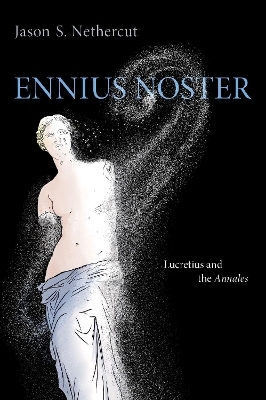
Ennius Noster
Lucretius and the Annales
Seiten
2021
Oxford University Press Inc (Verlag)
978-0-19-751769-7 (ISBN)
Oxford University Press Inc (Verlag)
978-0-19-751769-7 (ISBN)
Contrary to critical consensus, Jason S. Nethercut argues that throughout the De Rerum Natura, Lucretius' use of Ennius' Annales as a formal model for a long discursive poem in epic meter was neither inevitable nor predictable, and was in fact used to dismantle the values for which Ennius stood.
Consensus holds that Lucretius admired the literary prestige of Homeric epos, the form that Ennius famously introduced to Latin literature. However, some hold that Lucretius disagreed with Ennius' quasi-Pythagorean claim to be Homer reborn, and so uniquely qualified to adapt Homeric poetry to the Latin language. Likewise, received wisdom holds that Lucretius followed in the path of poets writing in the wake of Ennius' Annales, most of whom employed an Ennian style. However, throughout the De Rerum Natura, Lucretius' use of Ennius' Annales as a formal model for a long discursive poem in epic meter was neither inevitable nor predictable, on the one hand, nor meaningful in the simple way that critical consensus has always maintained.
Jason Nethercut posits that Lucretius selected Ennius as a model precisely to dismantle the values for which he claimed Ennius stood, including the importance of history as a poetic subject and Rome's historical achievement in particular. As the first book to offer substantial analysis of the relationship between two of the ancient world's most impactful poets, Ennius Noster: Lucretius and the Annales fills an important gap not only in Lucretian scholarship, but also in our understanding of Latin literary history.
Consensus holds that Lucretius admired the literary prestige of Homeric epos, the form that Ennius famously introduced to Latin literature. However, some hold that Lucretius disagreed with Ennius' quasi-Pythagorean claim to be Homer reborn, and so uniquely qualified to adapt Homeric poetry to the Latin language. Likewise, received wisdom holds that Lucretius followed in the path of poets writing in the wake of Ennius' Annales, most of whom employed an Ennian style. However, throughout the De Rerum Natura, Lucretius' use of Ennius' Annales as a formal model for a long discursive poem in epic meter was neither inevitable nor predictable, on the one hand, nor meaningful in the simple way that critical consensus has always maintained.
Jason Nethercut posits that Lucretius selected Ennius as a model precisely to dismantle the values for which he claimed Ennius stood, including the importance of history as a poetic subject and Rome's historical achievement in particular. As the first book to offer substantial analysis of the relationship between two of the ancient world's most impactful poets, Ennius Noster: Lucretius and the Annales fills an important gap not only in Lucretian scholarship, but also in our understanding of Latin literary history.
Jason Nethercut is Assistant Professor of Classics at the University of South Florida.
Introduction
Chapter 1: Ennius and the Tradition of Republican Epic
Chapter 2: Lucretius on the Ennian Cosmos
Chapter 3: Ennian Historiography in Lucretius
Chapter 4: Ennian Poetology and Literary Affiliation in Lucretius
Conclusion
Appendices
Works Cited
| Erscheinungsdatum | 25.11.2020 |
|---|---|
| Verlagsort | New York |
| Sprache | englisch |
| Maße | 239 x 155 mm |
| Gewicht | 567 g |
| Themenwelt | Literatur ► Klassiker / Moderne Klassiker |
| Geschichte ► Allgemeine Geschichte ► Vor- und Frühgeschichte | |
| Geschichte ► Allgemeine Geschichte ► Altertum / Antike | |
| Geisteswissenschaften ► Philosophie ► Philosophie Altertum / Antike | |
| ISBN-10 | 0-19-751769-2 / 0197517692 |
| ISBN-13 | 978-0-19-751769-7 / 9780197517697 |
| Zustand | Neuware |
| Informationen gemäß Produktsicherheitsverordnung (GPSR) | |
| Haben Sie eine Frage zum Produkt? |
Mehr entdecken
aus dem Bereich
aus dem Bereich
auf den Spuren der frühen Zivilisationen
Buch | Hardcover (2023)
C.H.Beck (Verlag)
20,00 €
Was Pompeji über uns erzählt
Buch | Hardcover (2023)
Propyläen (Verlag)
32,00 €


